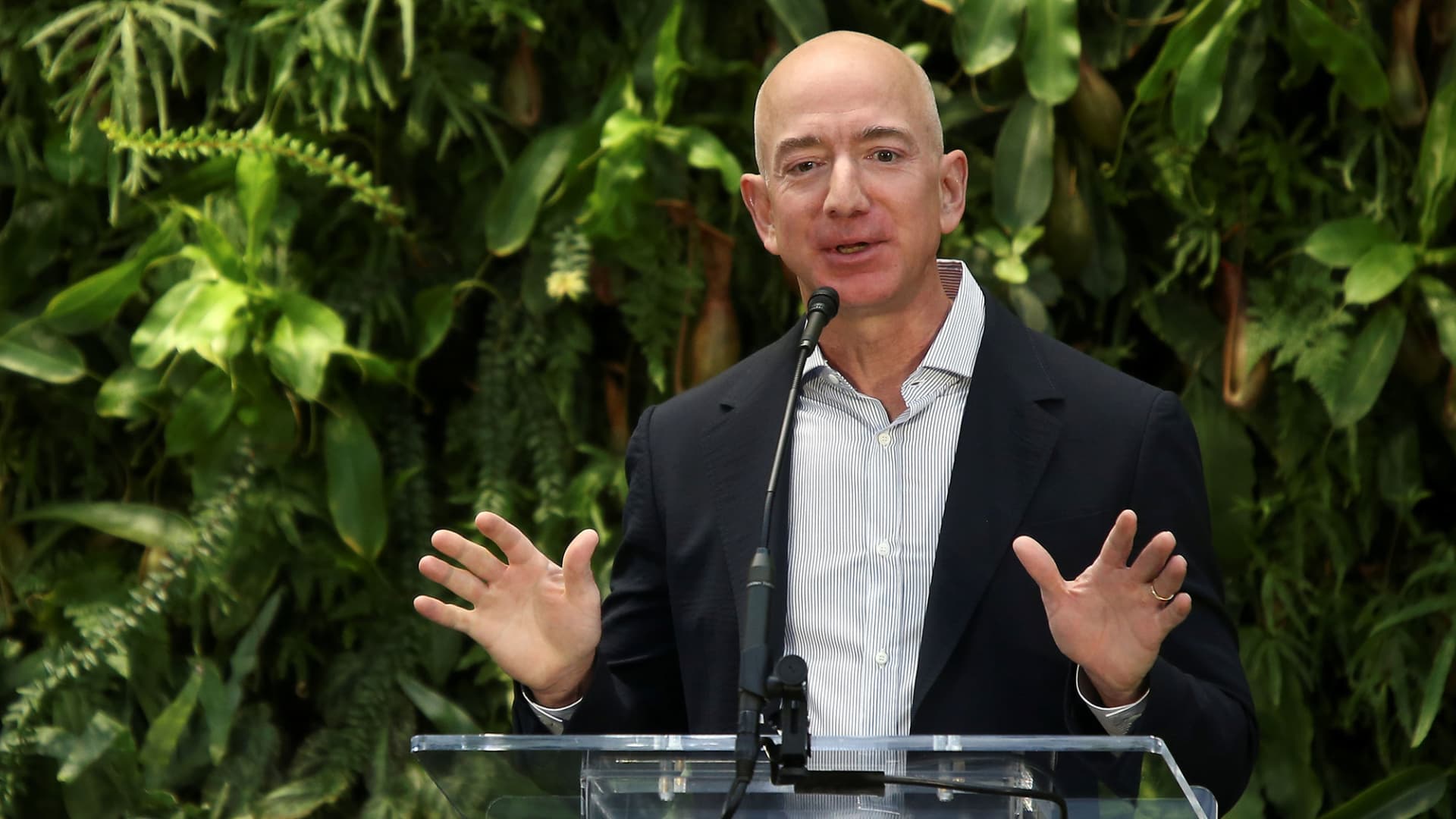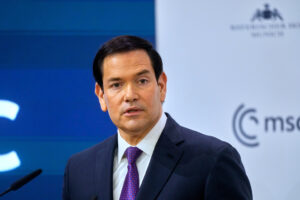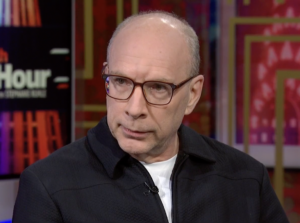Jeff Bezos: Billionaire, Philanthropist, Greenwasher?
The 27th UN Conference on Climate Change, COP27, saw a pronouncement from French President Emmanuel Macron that the Bezos Earth Fund had pledged $1 billion to protect carbon reserves and biodiversity. With such a prominent pledge, many have begun to ask, what is the Earth Fund, and where is it situated in the architecture of global environmental governance?

Image Credit: Lindsey Wasson/Reuters
The 27th UN Conference on Climate Change, COP27, saw a pronouncement from French President Emmanuel Macron that the Bezos Earth Fund had pledged $1 billion to protect carbon reserves and biodiversity. With such a prominent pledge, many have begun to ask, what is the Earth Fund, and where is it situated in the architecture of global environmental governance? Non-state actors are not new to the area, with NGOs and activists becoming increasingly prominent at these international conferences. But philanthropic groups like the Bezos Earth Fund are comparatively new. While they may be able to bring large amounts of money to the table, these actors raise concerns about the legitimacy and the power of wealthy individuals like Jeff Bezos. As a result, the fund and its plans are worth a closer look.
In 2020, Bezos created the fund with a commitment of $10 billion, which was to be distributed across environmental causes by 2030. The Fund is set to target “transformational system change” through a variety of pillars, including a dedication to environmental justice, being data-driven, gambling when the potential gains are large, and leading with humility in the face of the scale of the challenge. The Fund has a staff of approximately 30 individuals, with the most notable among them being Andrew Steer, the President and CEO. Steer’s background includes stints as the World Bank’s Special Envoy for Climate Change, and as Director General at the UK Department of International Development.
While it is not an anomaly, the Earth Fund is difficult to place within the broader architecture of global environmental governance. It is not an NGO itself, in that it does not carry out any work directly. It similarly is not a Multilateral Environmental Agreement of any sort, as it does not involve any agreement with multiple countries, binding or otherwise. Researchers have tried to conceptualize the place of philanthropic foundations, such as the Earth Fund, within this architecture. They have broadly called for the mobilization of further research on such organizations, but they also call into question the source of their legitimacy.
The Fund has focused on funding programs in five areas: nature solutions; environmental justice; decarbonization of the economy; economics, finance, and markets; and monitoring and accountability. Outside of the French announcement, the Fund has granted $1.54 billion so far to various NGOs and initiatives. While the specific programs are too numerous to mention, with some receiving just a few hundred thousand dollars, and others receiving tens of millions, of note are the Wildlife Conservation Society, UNEP, the Environmental Defense Fund, and the Union of Concerned Scientists. Its appearance at the sidelines of COP27 will be nothing new for the Earth Fund, which has announced previous commitments at the UN Ocean Conference, and as part of the US’s Justice40 initiative. Since the money of the Fund is aggregated across numerous projects beyond its own control, it is difficult to measure its precise impact after just two years. The money has gone towards dozens of reputable causes with important specific projects, from the restoration of coastal mangroves to creating markets for climate-safe cement and steel. Additionally, the Fund has been a part of various reports, including one co-authored with the UN High-Level Climate Champions.
At the same time, the Fund is a basket of hypocrisy in several areas. One on hand, while Jeff Bezos bankrolls the Earth Fund, he is also responsible for significant damage to the environment and climate in his other ventures. A 2022 study in Earth’s Future highlighted the atmospheric damage being created by space tourism, such as Bezos’s Blue Origin. This includes the injection of black soot into the atmosphere, along with pollutants like nitrogen oxides, aluminum oxide, hydrochloric acid, and chlorine, as well as water vapor. This output contributes to global warming and depletes the ozone layer. Bezos has attempted to marry Blue Origin with the goals of the Earth Fund, by stating that Blue Origin’s long-term goal is to move all polluting industries off Earth. The lack of a clear pathway there makes it not only aspirational, as Bezos admits, but also raises ethical considerations.
As well as Blue Origin, Bezos’s Amazon’s carbon dioxide emissions are growing year-on-year by significant margins: 18% between 2020 and 2021. This is likely an undercount since Amazon does not include the emissions that come from making many of the products it sells, unlike other retailers, such as Target. Unfortunately, Amazon and Blue Origin are inseparable from the Bezos Earth Fund. Bezos holds prominent positions in all three and the wealth which funds the Earth Fund has been accumulated through Amazon. This hypocrisy brings up more than just moral qualms. ‘Greenwashing’ is a pressing issue, and there is a fear among scholars like sociologist Justin Farrell that the work of the Earth Fund will distract from the real and tangible harm being done by Amazon and Bezos’s other ventures. Moreover, it can reduce any political capital or will to target such damage. Amazon is also known for tax avoidance, and in doing so, it deprives governments of financing for wider-scale climate action.
In addition to greenwashing, there are broader criticisms of the Earth Fund. With Bezos having such a prominent role, there is a risk that his personal links and biases cloud the ideals of being science and data-driven. So far, the fund has been given to organizations with less diverse leadership, and activists have critiqued it for this. Moreover, some of its beneficiaries, like the World Wildlife Fund and The Nature Conservancy, also face controversies around human rights abuses. Left-wing activists criticized it for stressing a technological approach to tackling climate change rather than a full-scale, immediate rejection of all conventional energy sources. Separately, Andrew Steer, speaking before COP27, said that it was not the role of philanthropy to fill in the resulting funding gaps. This highlights the perception of the Earth Fund and of similar projects, as evidenced by reports that wealthy countries are pushing for the UN’s Green Climate Fund to seek donations from super-rich individuals and big businesses. With rising inflation, and so many immediate concerns taking up the attention and coffers of governments around the world, it would not be surprising to see countries falling short of their funding agreements for climate initiatives. This may be accompanied by the unarticulated hope that billionaire philanthropists should and will fill that gap.
While the Bezos Earth Fund will doubtlessly offer significant funding to much-needed projects, it masks much bigger issues that this money could be better spent addressing. $10 billion dollars could make a significant change to Amazon’s supply chain and could address issues of environmentalism and equity. Moreover, the greenwashing and displacement of national commitments that the Fund precipitates call into question the Earth Fund’s utility within the global environmental governance architecture–what good is it truly doing?
Leon Langdon (he/him) is a second-year MA student at NYU’s International Relations Program. He obtained his undergraduate degree at University College Dublin’s Sutherland School of Law, with a minor in Politics. His research interests include climate issues, conflict resolution, and development studies. Leon has previously written for The Diplomat, the Oxford Political Review, and European Guanxi, as well as having had his work published by The Carter Center. He was also on the editorial board of the UCD SLS Review, and is currently a Peer Reviewer for the Columbia Journal of Asia. Leon also enjoys sports like rock-climbing and GAA, as well as exploring the city’s food scene.




